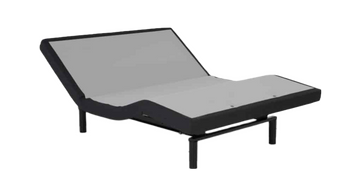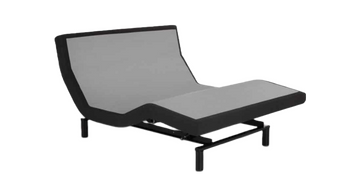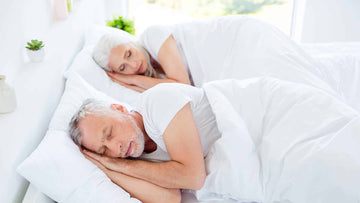What is MS?
According to the National MS Society, multiple sclerosis (MS), is an unpredictable and chronic disease of the central nervous system. The body’s immune system directs an attack on the healthy tissue in the central nervous system, which is made up of the brain, spinal cord and optic nerves.
Exactly why MS occurs is still unknown, but potential causes point to environmental, viral or genetic origin. According to the National Institute of Neurological Disorders and Stroke at the National Institutes of Health, MS occurs more commonly in women than men. The prevalence is five times higher in northerly climate zones than the tropics, and it’s twice as likely to affect caucasians than people of other races.
What does MS have to do with sleep?
How sleep impacts MS
Some studies suggest that people with MS experience sleep disturbances up to 3x more than the general population, and are 2x as liked to experience reduced quality of sleep. Because MS affects the nervous system, these disturbances typically manifest with body processes related to appendage movement, bladder control, and breathing.
According to a study led by W. Elon Fleming, MD, at the Sleep Disorders Center at Island Hospital in Anacortes, Washington, the most common sleep disorders in MS patients are nocturnal leg spasms, insomnia, REM sleep behavior disorder, narcolepsy, and sleep disordered breathing. Restless legs syndrome (RLS) is also highly prevalent among MS patients.
Those disorders can briefly be described as:
1. Nocturnal leg spasms: moving legs involuntarily during sleep
2. Insomnia: trouble staying asleep or falling asleep
3. REM sleep behavior disorder: the paralysis that normally occurs during REM sleep is incomplete or absent, allowing the person to “act out” his or her dreams
4. Narcolepsy: overwhelming daytime drowsiness or falling asleep uncontrollably
5. Sleep Disordered Breathing: breathing is interrupted during sleep which results in reduced oxygen flow and can cause snoring and frequent awakening
6. Restless Leg Syndrome (RLS): irresistible urge to move the legs
Any person without additional stressors on their body could experience lack of focus, slower response time, and poor cognitive function in the absence of a good night’s rest. But for a person with MS, deficiencies in Vitamin D, side effects from MS medications, increased napping during the day as a result of fatigue, reduced physical activity, stress, anxiety, and depression can also prevent quality REM cycles.
When you add up all of the factors that prevent a good night’s sleep, it’s no wonder it can be so difficult to achieve. Over 50% of people living with multiple sclerosis report sleep problems, however, there are some tricks that may help alleviate the pain when it comes to sleeping.
Steps to a better nights sleep if you suffer from MS
Steps to a better night’s sleep if you suffer from MS:
1. Set your biological alarm clock— going to bed and waking up at the same time every day helps set your biological clock, that way when you settle in for the night, your body will signal it’s time for bed
2. Clear your mind—if rehashing the day or worrying about tomorrow keeps you up, writing it all down can help clear an anxious mind
3. Exercise early—because exercise is a stimulant, avoid physical activity 4-6 hours before bedtime
4. Create a routine—engage in activities near bedtime that help you wind down, whether that be a hot bath, a cup of tea, or some light reading
5. Flush out the fluids—because bladder control can be problematic when sleeping with MS, try to avoid drinking water close to bedtime and always use the bathroom before sleeping
6. Get outside during the day—allowing your body to be in the light and move about will make it easier to relax and fall asleep later
7. Define your space—set you room up for sleep by making it a cool, quiet, and dark sanctuary. Using your bedroom only for sleeping instead of reading, TV, talking on the phone and other activities, can also help tell your body this room means bedtime only
8. Keep a sleep diary: a sleep diary like this one can help you track what might prevent you from getting those quality ZZZ’s
9. Fill out a sleep assessment: keeping diligent track of your sleep with your sleep diary can help you fill out a more accurate sleep assessment. Show this to your doctor to help strategize a better night’s sleep
Your mattress and MS
Because sensation and movement is impaired for people with multiple sclerosis, some people may yearn for a special mattress that will prevent the development of bed sores and keep them safe. But what should you be looking for?
Let’s break it down: a mattress can be dynamic or it can be static. A static mattress can be problematic because it can be made of unsupportive pressure-inducing coils. A static memory foam mattress may contour and sink under weight, and be a challenge when it comes to getting out of bed.
An adjustable mattress on the other hand, may fluidize air, alternate pressure, or provide side-to-side turning. This dynamism can better support a person with MS and a variety of their sleep disturbances, while providing a more therapeutic sleep experience.
Heat intolerance is also a big hurdle for people who suffer from MS, and when people with the disease become overheated, their ability to move and sense their environment is diminished. A mattress that prevents overheating and protects the skin is essential to maintain good health and stay asleep. Choosing a mattress that provides a protective surface and cooling properties should be a main focus when considering a mattress.
Other sleep aids
Once you select your sleep surface, there are a variety of other products that can couple with your mattress in order to further improve sleep quality.
1. An ergonomic bed that can be raised, lifted, lowered, tilted, and adjusted to your comfort can all help with any mobility issue. These are especially helpful for those who struggle to get in and out of bed, or if movement in the bed is hindered.
2. Cooling pads can be purchased that promote breathability, are moisture wicking, and sometimes act as an additional comfort layer.
3. Some people may sleep easier if they know they are protected with a waterproof mattress cover in the event that an accident were to happen.
4. A lightweight blanket can provide warmth and comfort without being constricting. Lighter materials can be easily kicked off or pulled back into place.
5. A railing or grab bar can also aide in overall movement for getting into and out of bed. It allows for independent mobility as well as stabilization when needed. Many different types of these exist, and some models may be collapsible or even moveable.
6. Floor pads or a low profile mattress can help someone who does not have bed rails. That way, if spasms or difficulty getting out of bed causes someone with MS to fall, they are cushioned or at least closer to the ground, minimizing injury.
Faqs
What is the best mattress for MS patients?
Let’s break it down: a mattress can be dynamic or it can be static. A static mattress can be problematic because it can be made of unsupportive pressure-inducing coils. A static memory foam mattress may contour and sink under weight, and be a challenge when it comes to getting out of bed.
An adjustable mattress on the other hand, may fluidize air, alternate pressure, or provide side-to-side turning. This dynamism can better support a person with MS and a variety of their sleep disturbances, while providing a more therapeutic sleep experience.
How do you sleep with MS?
1. Set your biological alarm clock--- going to bed and waking up at the same time every day helps set your biological clock, that way when you settle in for the night, your body will signal it’s time for bed
2. Clear your mind---if rehashing the day or worrying about tomorrow keeps you up, writing it all down can help clear an anxious mind
3. Exercise early---because exercise is a stimulant, avoid physical activity 4-6 hours before bedtime
4. Create a routine---engage in activities near bedtime that help you wind down, whether that be a hot bath, a cup of tea, or some light reading
5. Flush out the fluids---because bladder control can be problematic when sleeping with MS, try to avoid drinking water close to bedtime and always use the bathroom before sleeping
6. Get outside during the day---allowing your body to be in the light and move about will make it easier to relax and fall asleep later
7. Define your space---set you room up for sleep by making it a cool, quiet, and dark sanctuary. Using your bedroom only for sleeping instead of reading, TV, talking on the phone and other activities, can also help tell your body this room means bedtime only
8. Keep a sleep diary: a sleep diary like this one can help you track what might prevent you from getting those quality ZZZ’s
9. Fill out a sleep assessment: keeping diligent track of your sleep with your sleep diary can help you fill out a more accurate sleep assessment. Show this to your doctor to help strategize a better night’s sleep












